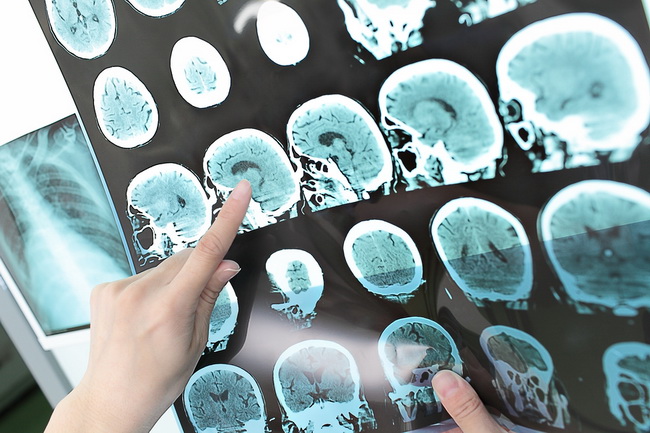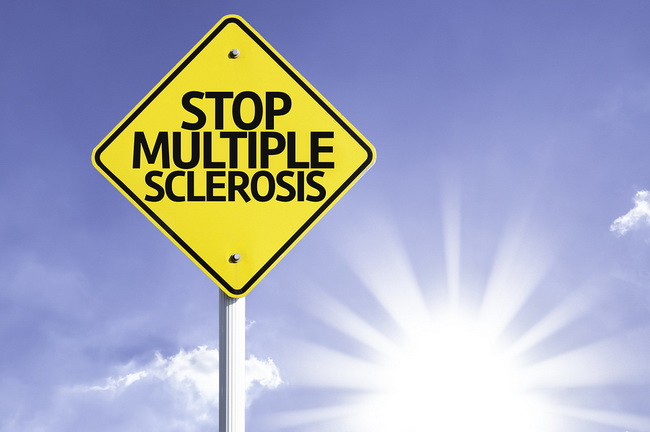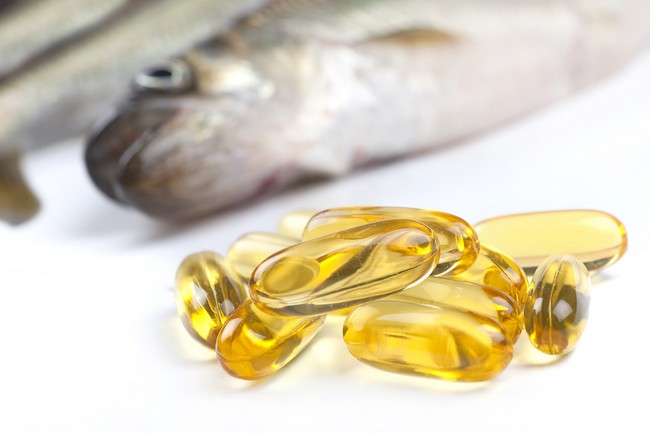- Make It Yourself Lavender Heart-Shaped Bath Bombs!
- 20 Things You Never Knew About “Down There”
- 12 Best Foods For Those Suffering From Arthritis Pain
- 12 Personal Hygiene Mistakes Almost Everyone Makes (Mom Never Told You About #4!)
- 15 Medicinal Plants And Herbs From The Cherokee People
- 12 Mind-Blowing Benefits Of Drinking Coconut Water During Pregnancy
- 12 Outstanding Winter Foods That Won’t Fatten You Up Like A Christmas Turkey
The Causes and Cures of MS

Photo credit: bigstock
MS (Multiple sclerosis) is a devastating disease that affects the central nervous system. This disease typically begins in early adulthood, with the typical victim being a woman between the ages of 20 and 40. Women are twice as likely to have this disease as men. Unfortunately, MS has been thought to be one of the least understood of all diseases, but recognizing common causes can offer hope to all people who suffer from MS.
Most people with MS have some sort of nutritional deficiency. Numerous studies show that the essential fatty acids are the building block of the nervous system and the brain. Many MS patients lack these essential fatty acids. In Western countries where people eat large amounts of conventional dairy products, red meats, and processed foods, this deficiency is common as these foods contain very little essential fatty acids. MS is uncommon in countries that have diets that are high in unsaturated fats, including plenty of oily fish, fresh organic fruits and veggies, olive oil, and other seed oils, all of which are very high in EFA’s.
However, even with a balanced diet, MS patients have been shown to have difficulties in absorbing other essential nutrients such as folic acid, amino acids, B1, B6, B12, magnesium, manganese, and selenium.
Allergies or intolerance of certain foods are also common for those with MS. The foods that are the most frequent offenders are foods that contain caffeine, yeast, sugar, gluten, corn, dairy products, food additives, vinegars, tannins, wheat, and wine.
As a result of these food intolerances, combined with the Candida in the body, a type of system wide poisoning goes on. Toxins leak through the intestines and into the blood. These toxins are detected by the immune system, which then mounts a defense in order to protect the body. This continual fight weakens the immune system, which then allow other yeasts and pathogenic viruses, which forces the immune system to work even harder. Over time, the immune system begins to attack the cells in the body, which results in autoimmune diseases like MS. Find out 15 ways to help your body fight toxins.
Besides nutritional deficiencies, environmental toxins play a role in this disease as well. Mercury, which has been recognized as a poison since at least the 16th century, has been used in dentistry since the early 1800’s. Those suffering from MS have been shown to have mercury levels as much as 7 times higher than normal subjects.
Also, research done on patients that had the Epstein-Barr virus, showed that their levels of EFA’s were very low, just like MS patients. The Epstein-Barr virus stops the body’s ability to metabolize EFA’s, which causes a partial breakdown of the body’s immune system. Those who have an acute episode of Epstein-Barr in their teenage years have a greater risk of developing MS later in life.
There are many different factors for MS, one of which is possibly that a lack of sunlight in childhood has something to do with developing MS later in life. For example, studies show that persons born in the Northern hemisphere of the world during the month of May have a higher than average risk of developing MS. An analysis of data from studies that involved more than 42,000 people in Britain, Denmark, Canada, and Sweden found that May babies had a 13 percent increased risk of developing MS later in life. However, having a birthday in November decreased the odds by 19 percent. This effect was similar in every country except for Scotland. Scotland has the highest records of MS in the world. Although it’s difficult to decide exactly what the correlation is between MS and the month of birth, but scientists suspect it might have something to do with exposure to sunlight and the mother’s vitamin D levels, which somehow influence the baby’s development. Read more about dangers of Vitamin D deficiency.
Continue to Page 2

Photo credit: bigstock
Although it’s very difficult to know with any certainty which supplements or in what dosages would be helpful for MS, there are a few natural supplements that seem to help most MS patients. Always check with your doctor before starting any supplement routine to be sure there will be no drug interactions.
1. Vitamin D
Studies show that there appears to be an association between vitamin D levels and the rate of MS relapse. Increased sun exposure might help to protect against the risk of developing this condition. Also, studies show that pregnant women with higher levels of vitamin D are less likely to develop MS in the years after they have children. Natural sunlight is the best way to get vitamin D as some studies show that an increase in foods that contained vitamin D did not improve symptoms. If you live in an area with little sunlight, consider supplements or UV lamps.
2. Curcumin
In laboratory studies, curcumin stopped the progression of MS. Find out other miraculaous benefits of curcumin.
3. Alpha Lipoic Acid
In mouse studies alpha lipoic acid showed to slow the progression of MS and in a human trial it showed a biochemical marker. Taking between 10 to 25mg of R lipoic acid might be helpful.
Continue to Page 3

Photo credit: bigstock
4. Fish Oil
Fish oil supplements have been helpful, along with the consumption of more cold water fish. It’s thought that they omega 3 fatty acids help with symptoms.
5. Carnitine
Taking carnitine supplements have been found to be very helpful for reducing the symptoms of fatigue.
6. Yoga
Believe it or not, yoga has been shown to be very helpful for improving both neural function and muscle function. Subjects who participated in a 6 month yoga class showed that they had a significant improvement in fatigue levels compared to the control group, according to a study published in Neurology.
Smoking increases the risk of developing MS but it’s not the nicotine that causes this increase. It’s unknown at this time why smoking increases the risk although there are many theories. The cyanide in cigarettes is one theory. Cyanide has been known to cause damage to nerve tissue. Smoker’s vulnerability to infections is also thought to be the reason. If you are an MS patient, don’t smoke as it only makes your symptoms worse.
Other notable causes for MS include stress, trauma, and excessive EMF exposure.
Sources:
Trivieri, Larry. Alternative Medicine: The Definitive Guide. Berkeley, CA: Celestial Arts, 2002. Print.

































BOKinLarksville
Jan 23, 2015 at 5:51 pm
Your article was interesting until you pushed a bunch of supplements.. Real food should have been the emphasis, not some snake oil that hasn’t been proven to do anything but lighten your wallet..